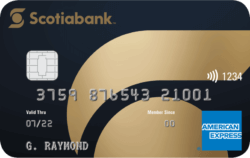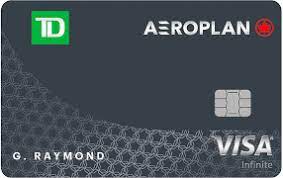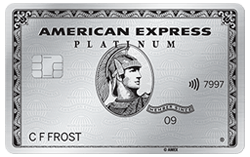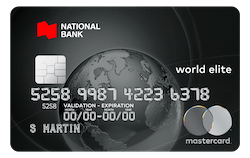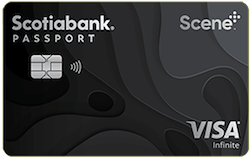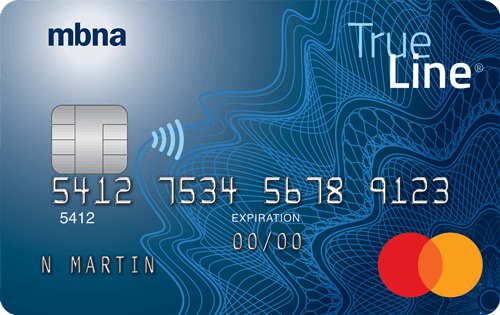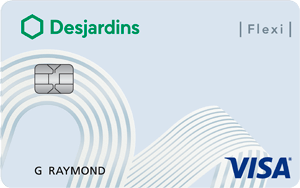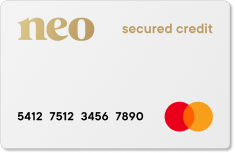MoneySense ranked the best credit cards in Canada across numerous categories. On this page, you’ll find the best of the best: those most likely to help you achieve common financial goals, from earning travel points to paying down the balance from another card. Let’s dive in.
Compare popular credit cards in Canada
Use our interactive tool to filter credit cards based on your individual needs and profile, or scroll down for the MoneySense top credit card picks.
Types of credit cards: Which do you need?
When Canadians shop around for a new credit card, they typically have one of four goals in mind: earn rewards, access perks, save on interest, or establish or rebuild credit. We’ve designed this credit card ranking around each of those needs. Read about the top card picks by clicking on either a financial goal that aligns with your needs or one of the card types that interest you.
Goal #1: Get a credit card to earn rewards
Rewards credit cards that earn cash back and travel points are most suitable for Canadians who frequently use credit cards but don’t usually carry a balance. Rewards credit cards provide a return on your spending. However, many charge an annual fee. So, if you don’t expect to use the card regularly, or if you typically carry a balance, the annual fee and/or interest charges can easily cost you more than the rewards are worth. A no-fee or low-interest credit card may be a better option in these situations.
When choosing between a points credit card and a cash back card, Canadians should consider their spending habits and preferences for perks. A points card is best for those who travel often and see value in rewards for flights, hotels or other travel perks. A cash back card is typically more straightforward, offering a percentage of your spending on the card back as cash, which can be redeemed for credit or deposited into your bank account. Consider the annual fee, interest rates and rewards bonus categories (such as groceries or gas) to decide which card fits your lifestyle and financial goals.
Best rewards cards in Canada

Rogers Red World Elite Mastercard

Scotiabank Gold American Express Card

TD Aeroplan Visa Infinite Card
Best cash back credit card in Canada
At a glance: The Rogers Red World Elite Mastercard is truly the best cash back credit card in Canada, offering a high earn rate of 1.5% on all purchases—meaning there’s no need to worry about maximizing bonus categories. The accelerated rate of 3% on all U.S. purchases is enough to cover foreign transaction fees. And, this no-fee option also provides valuable travel perks, including airport lounge access and emergency medical and trip cancellation insurance.
Rogers Red World Elite Mastercard
Annual fee: $0
- 3% cash back on all U.S. dollar purchases
- 1.5% on all other purchases (2% for Rogers, Fido and Shaw customers)
Welcome offer: None at this time.
Card details
| Interest rates | 25.99% on purchases, 27.99% on cash advances, 27.99% on balance transfers |
| Income required | $80,000 per year |
| Credit score | 725 or higher |
Pros
- Solid rewards: Earn 1.5% on all purchases in Canada. And as a Mastercard, this is one of the best cards to use at Costco, which doesn’t accept Visa or American Express.
- Rogers, Fido and Shaw customers earn more: Customers get 2% cash back on all purchases (instead of the standard 1.5%). Plus, when they redeem cash back with Rogers, Fido or Shaw, the rewards are worth 1.5 times more. For example, $100 in cash back becomes $150 when applied to a Rogers bill.)
- Great for U.S. shopping: Earn 3% cash back on U.S. currency purchases, easily offsetting the typical 2.5% foreign transaction fee.
- No annual fee: This is uncommon for World Elite Mastercards in Canada.
- Flexible redemptions: Redeem rewards against purchases on your card for as little as $10.
Cons
- High income requirement: As a World Elite Mastercard, the eligibility requirements put it out of reach for some Canadians.
Best travel credit card in Canada
At a glance: The Scotiabank Gold American Express is the best travel credit card in Canada, thanks to its impressive rewards program, comprehensive insurance package and suite of travel perks, including no foreign transaction fees. With a generous welcome bonus and the flexibility to redeem points for travel and other purchases, it’s the perfect credit card for frequent travellers.
Scotiabank Gold American Express
Annual fee: $120
- 6 points per $1 at Sobeys-affiliated stores
- 5 points per $1 on dining, entertainment and groceries
- 3 points per $1 on gas, transit and streaming
- 1 point per $1 on everything else
- Pay no FX fees on foreign purchases
Welcome offer: Earn up to $780 in value in the first 12 months, including up to 40,000 bonus Scene+ points. Offer ends July 1, 2025.
Card details
| Interest rates | 20.99% on purchases, 22.99% on cash advances, 22.99% on balance transfers |
| Income required | $12,000 per year |
| Credit score | 725 or higher |
| Point value | 1 Scene+ point = $0.01 when redeemed for travel, store purchases and food and drink at Cineplex and Scene partners |
Pros
- Straightforward redemptions: Redeem for travel purchases through Scene+ Travel, Powered by Expedia, in increments of 100 points (valued at $1). There are no complicated rules or exceptions to manage.
- Redemption window: Through the apply points to travel option, you can redeem your points retroactively, for up to 12 months, after you make a travel purchase.
- No foreign transaction fees: Enjoy savings on foreign currency transactions when travelling or online shopping, as this card waives the usual 2.5% foreign transaction fee.
- Eligibility requirements: You will likely need an income of $12,000 per year to qualify, making it accessible to most Canadians.
Cons
- Fixed point redemption value: While earning rates are high, points are always valued at $0.01 and cannot be transferred to airline frequent flyer programs, unlike some other cards.
- No free lounge access passes: While the card offers a discount on Priority Pass memberships for airport lounge access, it doesn’t include free lounge visits.
Best airline credit card in Canada
At a glance: If you frequently fly with Air Canada, consider the TD Aeroplan Visa Infinite—our pick for the best Aeroplan credit card in Canada. It comes with easy redemptions and extras like a $100 Nexus fee rebate every four years. Plus, if you frequently spend on Uber rides or Starbucks purchases, you could stretch your rewards even further with this card.
TD Aeroplan Visa Infinite Card
Annual fee: $139 (waived first year)
- 1.5 Aeroplan points per $1 on gas, EV charging, groceries and purchases
- 1.5 Aeroplan points per $1 on purchases made directly through Air Canada (including vacation packages)
- 1 point per $1 on all other purchases
Welcome offer: Earn up to $1,300 in value, including up to 40,000 Aeroplan points and no annual fee for the first year. Conditions apply.
Card details
| Interest rates | 21.99% on purchases, 22.99% on cash advances (21.99% in Quebec), 22.99% on balance transfers (21.99% in Quebec) |
| Income required | Personal income of $60,000 or household income of $100,000 |
| Credit score | 680 or higher (recommended) |
| Point value | Aeroplan points are worth $0.02 on average |
Pros
- Free checked bags for up to nine people: Card holders and up to eight companions travelling on the same reservation get their first checked bag free on Air Canada flights.
- Flexible redemptions: Redeem your points for Air Canada flights or on a dozen Star Alliance partners like Lufthansa and United.
- Nexus fee rebate: Receive a reimbursement of your $100 Nexus Membership fee every 48 months, making it easier to travel over the Canada-U.S. border.
- Competitive insurance package: Includes emergency medical travel coverage for up to 21 days—longer than many comparable cards—or up to 4 days for Canadians 65 and older.
Cons
- High annual fee: A slightly higher fee than some other cards in its category.
Goal #2: Get a credit card for perks and benefits
A premium credit card is ideal for Canadians who can fully make use its perks and benefits, such as frequent travellers and high spenders. These cards typically offer accelerated earn rates and some very generous welcome offers—all of which help offset the hefty annual fee. Overall, premium cards are best suited for those Canadians with high spending habits and lifestyle needs.
A credit card perk refers to any benefit and/or reward offered by a credit card issuer to cardholders. Perks can vary greatly depending on the type of card, though. Some of the most coveted benefits include no foreign transaction fees; travel insurance (including emergency medical, trip cancellation and loss baggage insurance); airport lounge access; priority boarding and free checked bags on flights; dining and travel credits; concierge services; and exclusive access to concerts, presale tickets, private experiences and more.
Best credit cards for perks

American Express The Platinum Card

National Bank World Elite Mastercard

Scotiabank Passport™ Visa Infinite Card
Best premium credit card in Canada
At a glance: The Amex Platinum gives new meaning to the old saying, “You get what you pay for.” In this case, the $799 annual fee pays for itself through a smorgasbord of incredible perks. Your travel experience will be transformed with unlimited airport lounge access, partnerships at Fine Hotel + Resorts properties and priority treatment at Toronto Pearson Airport. The many perks—like several hundred dollars worth of annual travel and dining credits, and a Nexus fee rebate—can go a long way toward offsetting the price tag.
American Express Platinum
Annual fee: $799
- 2 points per $1 on dining and food delivery
- 2 points per $1 on travel, plus 1 additional point on purchases booked through Amex Travel Online
- 1 point per $1 on everything else
Welcome offer: Earn up to 180,000 Membership Rewards points ($1,800 value).
Card details
| Interest rates | N/A (as a charge card, you’re required to pay off your balance in full every month) |
| Income required | None |
| Credit score | 760 or higher |
| Anniversary bonus | $200 annual dining credit to use at a curated list of Canada’s top restaurants. Plus, $200 annual travel credit when booking through American Express Travel Online. |
| Point value | 1 Amex Membership Rewards point = $0.01 when redeemed with the Flexible Points Travel Program, $0.015 on average with the Fixed Points Travel Program, and up to $0.02 with airline points transfers |
Pros
- Credits offset the annual fee: You’ll get a $200 travel credit each year that can be redeemed towards a travel purchase made through American Express Travel Online. Spend your additional annual $200 dining credit at select restaurants around the world, including 100 in Canada.
- Best-in-class airport lounge access: Get access to The American Express Global Lounge Collection composed of more than 1,400 lounges in over 140 countries, including American Express Centurion Lounges, Plaza Premium and Delta Sky lounges. Cardholders may have unlimited free visits and companion passes at no additional cost, depending on the lounge.
- Platinum Concierge service: Obtain personalized assistance from a concierge, who can make restaurant reservations, obtain tickets to special events, book services for you, and more—at no additional cost to you.
- No credit limit: Because it’s a charge card (no credit limit), high-volume spenders are not restricted with their spending. But of course, the debt needs to be paid off.
Cons
- High fee for authorized users: Additional cards cost $250 each annually.
- Lacklustre travel medical insurance: Whereas some credit cards offer 20 days or more insurance, this one only covers up to 15 consecutive days and doesn’t offer any insurance to cardholders aged 65 or older.
- Can’t carry a balance: Charge whatever you want to the card, but because it’s a charge card, you’re required to pay off the balance in full every month.
Best credit card for travel insurance
At a glance: Not only does the National Bank World Elite Mastercard offer a wide range of insurance—from emergency medical to trip cancellation, baggage delay and car rental insurance—but the coverage amounts are very impressive. Most notable is the duration of emergency medical coverage, including for seniors, 65 and older.
National Bank World Elite Mastercard
Annual fee: $150
- 5 points per $1 on grocery and restaurant purchases
- 2 points per $1 on gas, EV charges, recurring bill payments and travel booked through À La Carte Rewards
- 1 point per $1 on all other purchases
Welcome offer: Earn up to 40,000 points.
Card details
| Interest rates | 20.99% on purchases, 22.49% on cash advances, 22.49% on balance transfers |
| Income required | Personal income of $80,000 or household income of $150,000 |
| Credit score | 760 or higher |
| Point value | 1 point is worth $0.01 when redeeming using National Bank’s À La Carte Rewards Plan. |
Pros
- Length of emergency medical coverage: Get $5 million in emergency medical coverage for trips of up to 60 days, which is three times longer than many other top-tier travel insurance cards. Canadians ages 65 to 75 are covered for up to 15 days (typically, coverage is for 3 to 5 days).
- Coverage for travel inconveniences: Comes with above-average trip cancellation coverage of $2,500 and trip interruption coverage of $5,000.
- Annual fee: While higher than the average cost of $120, the annual fee is much lower than most premium cards with comparable or lesser insurance packages.
- Airport lounge access: Cardholders have unlimited access to the National Bank Lounge at the Pierre Elliott Trudeau airport in Montreal.
Cons
- No travel accident coverage: You’re not covered for injuries that occur while travelling on a common carrier, such as an airplane or train.
- High income requirements: As with other World Elite Mastercards, the eligibility requirements may be difficult to meet.
Best credit card for airport lounge access
At a glance: With six complimentary airport lounge visits a year, the Scotiabank Passport Visa Infinite Card offers the most free visits among credit cards in a comparable fee range. Plus, the card provides additional travel perks like no foreign transaction fees and a solid travel insurance package.
Scotiabank Passport Visa Infinite
Annual fee: $150
- 3 Scene+ points per $1 spent at Sobeys stores
- 2 points per $1 on groceries, dining, entertainment and transit
- 1 point per $1 on all other eligible purchases
Welcome offer: Earn up to $1,100 in value in the first 12 months, including up to 40,000 bonus Scene+ points. Offer ends July 1, 2025.
Card details
| Interest rates | 20.99% on purchases, 22.99% on cash advances, 22.99% on balance transfers |
| Income required | Personal income of $60,000 per year or household income of $100,000 per year |
| Credit score | 725 or higher |
| Point value | 1 Scene+ point = $0.01 when redeemed for travel on any airline or hotel (including Airbnbs). |
Pros
- Airport lounge access: Comes with complimentary Visa Airport Companion membership and six lounge passes per year, the most free visits of any travel credit card in a similar fee range.
- No FX fees: You won’t be charged a foreign transaction fee on purchases made in internatinoal currencies.
- Good travel insurance: Get emergency medical insurance for up to 25 days (for those under 65 years of age), plus trip cancellation, flight delay, lost baggage, rental car insurance and more.
Cons
- Limited earning potential: The points earned in categories, such as dining and entertainment, are valued at less than what you might find with other cards.
- Fixed point value: Travel points are always valued at one cent each, and unlike some other credit cards, you can’t transfer points to airline loyalty programs.
- Annual fee: The $150 annual fee is steeper than that of some similar credit cards.
Goal #3: Get a credit card to save on interest charges
Credit cards in Canada typically charge about 20% interest on purchases and about 22% on cash advances and balance transfers. However, low-interest cards are designed to save cardholders money on interest (and help to pay off a balance quickly). If you typically carry a balance, a low-interest rate card may be a better option than a rewards-earning option that charges a more standard interest rate.
While some cards in Canada stand out for a regular low purchase interest rate, you can also consider balance transfer credit cards, which offer an extra-low interest rate (sometimes 0%) for a limited time. Balance transfer cards are most suitable for Canadians who currently have a credit card balance and want to pay it off faster than with a higher interest rate card (or simply save money on interest charges).
Credit card interest is expressed as an annual percentage rate (APR). If you’ve paid your credit card balance in full by the end of the billing cycle, you shouldn’t be charged any interest. But if you carry a credit card balance, interest charges begin to accumulate, and you’ll continue to pay interest until you pay your balance back in full.
Though APRs are expressed in annual terms, credit card interest is calculated daily and charged monthly. (The APR represents the total cost of borrowing money for a year.) You can figure out your daily interest rate by dividing your APR by 365 (or 366 during a leap year). For a credit card with a 19.99% APR, your daily rate is 0.0548%.
This means a $1,000 balance will incur $0.54 in interest charges in a single day. And the interest compounds daily, which means that the next day, assuming you don’t make any additional purchases, you’d be charged interest on a total of $1,000.54, and so on.
Finally, at the end of the billing cycle, you’re charged interest based on the average daily balance during each one of the days in the billing cycle. So, to determine the amount of interest owed:
- Calculate your daily interest rate by dividing the APR by 365.
- Find your average daily balance by adding up the balances for each day of the billing cycle and dividing it by the number of days in your statement period.
- Multiply your average daily balance by the daily interest rate, and multiply this total by the number of days in the statement period.
That’s why it’s best to pay down your debt as quickly as possible. If you don’t square off your balance in full by the date noted on your statement, you’ll owe interest, starting on the day that you made your purchase, which can also be compounded by more interest.
Federally regulated financial institutions (think: major banks) are required to offer an interest-free grace period of at least 21 days, which begins on the last day of your billing period. Some issuers offer up to 30 days. (Note: This rule doesn’t apply to cash advances or balance transfers.)
Best credit cards to save on interest

MBNA True Line Mastercard credit card

Scotiabank Value Visa Card

RBC Visa‡ Classic Low Rate Option
Best balance transfer credit card in Canada
At a glance: For balance transfers, our pick is the MBNA True Line Mastercard. It provides a lot of breathing room for paying down debt: 12 months of 0% interest on balance transfers completed within 90 days of opening your account.
MBNA True Line Mastercard
Annual fee: $0
Balance transfer offer: Receive a 0% interest rate for 12 months on balance transfers completed within 90 days. (Offer not available for residents of Quebec.)
Card details
| Interest rates | 12.99% on purchases, 24.99% on cash advances, 17.99% on balance transfers |
| Income required | None specified |
| Credit score | 660 or higher |
Pros
- Best promotional balance transfer offer available: The welcome offer gives you a full year interest-free to get on top of your debt.
- Low regular purchase interest rate: This rate is fixed and won’t change regardless of missed payments or changes in the prime rate.
Cons
- Balance transfer fee: The transfer fee of 3% (with a minimum fee of $7.50) is higher than comparable cards with a transfer fee of 1% or 2%.
- Not available in Quebec: Residents of the province aren’t eligible for this card.
Best low-interest credit card in Canada
At a glance: The Flexi Visa from Desjardins credit union should be considered if you expect to carry a balance on your card. Its low standard interest rates of 10.90% on purchases and 12.90% on cash advances are the lowest in Canada for a no-fee credit card. Plus, it comes with some travel insurance, select rental car discounts and mobile device insurance—perks typically only found with annual-fee cards.
Desjardins Flexi Visa
Annual fee: $0
Rewards: Does not offer rewards.
Welcome offer: None at this time.
Card details
| Interest rates | 10.90% on purchases and 12.90% on cash advances |
| Income required | Not specified |
| Credit score | Not specified |
Pros
- Lowest interest rate available: Lowest purchase APR of any no-fee card in Canada.
- Some travel insurance: Includes emergency medical, trip cancellation and baggage coverage for up to three days—suitable for a weekend trip. Plus, the emergency medical coverage applies to travellers age 75 and under, whereas coverage stops at 65 with some cards.
Cons
- No balance transfer promotion: If your goal is to pay off a current credit card balance fast, consider a card with a balance transfer promotion instead. The Flexi Visa doesn’t charge a balance transfer fee, however, which is a plus for those who decide to transfer anyway.
- Limited in-person support: Desjardins only offers brick and mortar branches in Ontario and Quebec.
Goal #4: Get a credit card to build credit
Secured credit cards are a good option for Canadians who want to establish or rebuild their credit score. These cards require a cash deposit as collateral, which sometimes is the credit limit. This makes secured cards more accessible than other types of cards, because if the cardholder doesn’t make their payments, the lender is protected. However, it is possible to miss payments and be charged interest. Also, because secured card issuers generally report account activity to one of the Canadian credit bureaus (or both), the cards can be used to establish or rebuild a credit score. There are newcomer credit cardss and student credit cards and other non-secured cards that are extremely accessible to people with no credit history.
Best credit building credit cards

Secured Neo Mastercard

Scotiabank Scene+™ Visa Card

BMO CashBack MasterCard
Best secured credit card in Canada
At a glance: The Secured Neo Mastercard provides an opportunity to earn cash back rewards—a rare perk for a secured card. Plus, the minimum deposit requirement is only $50, making it very accessible to many Canadians who wouldn’t otherwise have access to credit.
Secured Neo Mastercard
Annual fee: $60
Rewards: A minimum of 0.5% cash back and an average of 5% cash back on purchases at partners
Welcome offer: Get $25 when you sign up.
Card details
| Interest rates | 19.99% to 29.99% on purchases (19.99% to 24.99% for Quebec residents) and 22.99% to 31.99% on cash advances (22.99% to 25.99% for Quebec residents) |
| Income required | None |
| Credit score | 690 or higher |
Pros
- Cash back on purchases: You can earn cash back on gas, groceries and purchases made at Neo’s partner businesses.
- Low deposit requirement: With a minimum deposit of just $50, this card is accessible to most people, whereas many other secured cards require a deposit of $500 or more.
- Customizable rewards: For a monthly fee, you can subscribe to Neo’s Perks program, which provides extra rewards on spending and additional benefits like airport lounge access.
Cons
- Potentially high interest rates: Based on your credit profile, your interest rate may be as high as 29.99% on purchases and 31.99% on cash advances, which is steeper than other secured cards.
- Limited cash back potential: There is a cap on how much cash back you can earn, which may not be ideal for heavy spenders.
How we pick the best cards
Many websites that compare financial products let computer systems make their credit card recommendations. Using formulas and a list of data points, they crunch the numbers and spit out an “impartial” or “unbiased” list of cards. The problem is credit card recommendations aren’t an exact science—they’re subjective by nature. Do five free airport lounge visits per year trump no foreign transaction fees on international purchases? Answer: Maybe. Maybe not. It depends.
Instead of relying on algorithms, MoneySense editors consider and debate how Canadians actually use credit cards. Our editors apply their credit card expertise, extensive research in the fine print (we even phone up the banks to fact check!) and knowledge of Canadians’ financial goals to come up with selection criteria that best reflect the category and type of card. Our recommendations are subjective—and yes, open to debate—but they are always made with you in mind.
First off, any credit card issued in Canada has the potential to be featured as one of our picks—not just affiliate partners like some other credit card comparison sites. In most cases, there are only a handful of strong cards in any given category that are worthy of a close point-by-point comparison.
Once we have our shortlist of cards, we dig into the fine print to see how they stack up on the criteria that matter most for the category—it could be the rate of return on your spending (for travel cards), the interest rates offered (for balance transfer and low-interest cards), or the eligibility criteria (for student cards). Oftentimes, it’s a combination of a few factors.
This focus helps us find the products that are mostly likely to help you achieve your goals. In the end, additional features and benefits are often better treated as an added bonus—not the main reason to get a card, but nice to have anyway.
No. Any card issued in Canada can be featured on MoneySense. It’s the only way to maintain our award-winning reputation and journalistic integrity.
That said, our parent company, Ratehub Inc., works with a lot of financial partners in Canada. When there’s an active partnership, a link is added to cards issued by the partner, which allows MoneySense to earn revenue when you click on them and apply. Links are added after judging and do not influence these picks. The money we earn is used to continue producing the quality Canadian personal finance journalism you expect from us—all without a paywall. Let’s be honest, it’s a great set-up: We get to showcase the cards we truly want, while still benefiting from the hard work of the Ratehub partnerships team. Read more about how MoneySense makes money.
We change our credit card picks at any time. Every now and then, an issuer changes a credit card’s features—such as the interest rates, earn rates or point values—and we update our lists to reflect that. It’s the only way to make sure we’re recommending the very best financial products available in Canada.
You may notice articles like these typically have a recent publication date. That’s because the pages are continuously updated to provide the most accurate and relevant information. Sometimes, we change details like a card’s interest rates and welcome offers. Other times, we update our analysis to ensure we’re helping you make the best financial choices. These changes show that we care about the quality of the information on our pages.
How credit cards work
When you use a credit card in Canada, you’re essentially taking out a short-term loan with a balance that comes due every month. As you pay off your balance, the credit available to you the following month starts to go back up to the maximum credit limit on your card. There are many ways you can use a credit card in Canada and internationally. For example, many cards can be used for purchases, for balance transfers and/or cash advances. As useful as these are, it’s important to understand how to use credit cards responsibly to avoid falling into financial trouble, which can negatively affect your credit score and ability to apply for a good car loan or low-rate mortgage in the future.
What are the advantages of using a credit card?
One of the major benefits of a credit card is convenience. You can simply pay for your purchase knowing you will be billed for the outstanding balance the following month—no need to carry cash in your wallet, plus you can shop online.
Other benefits include the ability to accrue rewards and points—such as cash back or travel points—based on a percentage of your purchases each month; depending on the card you choose, it can go from 1% to 4%. You can then redeem points for gift cards, travel and/or other items offered through the credit card company’s rewards catalogue.
Credit cards can also help you build credit in Canada. Always paying on time will help you achieve a high credit score (650 plus), allowing you to borrow for a mortgage or a car loan in the future at a reasonable interest rate from a financial institution.

